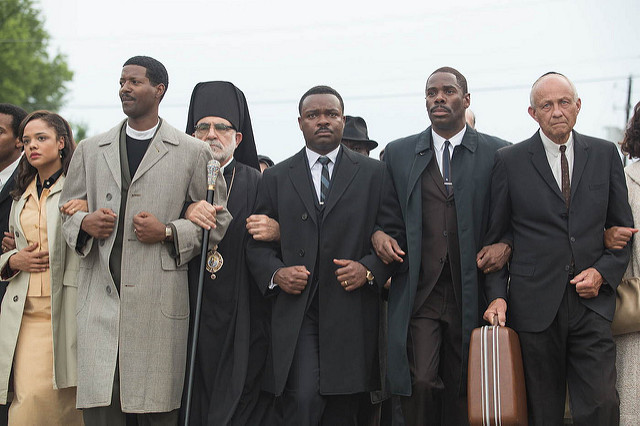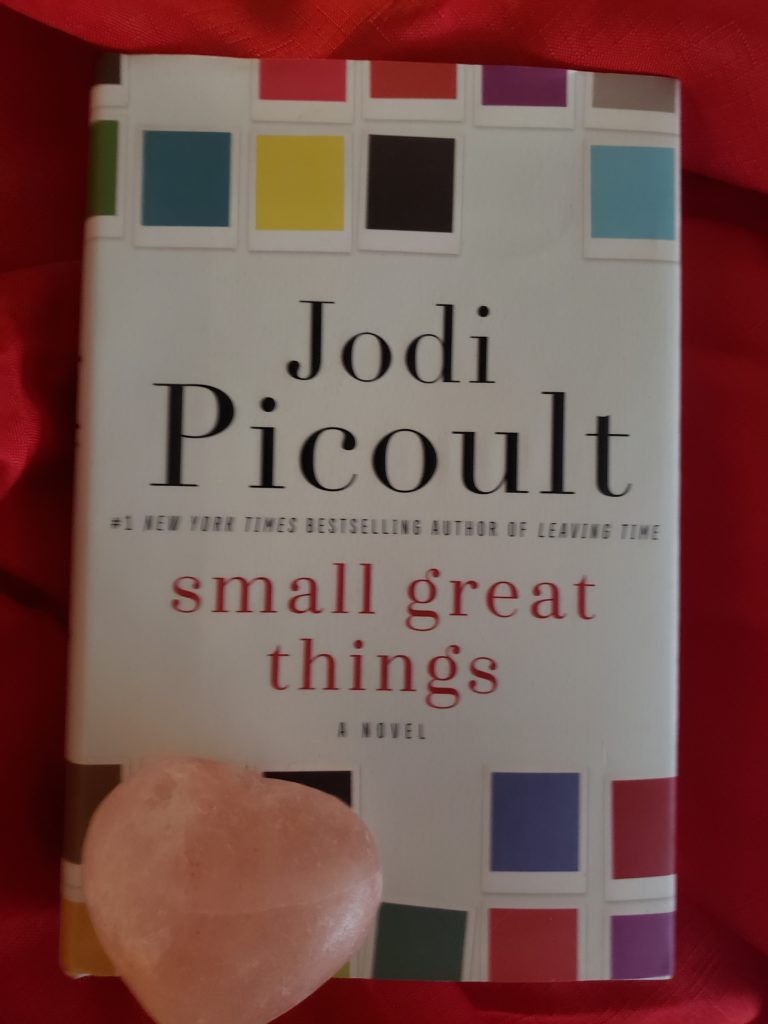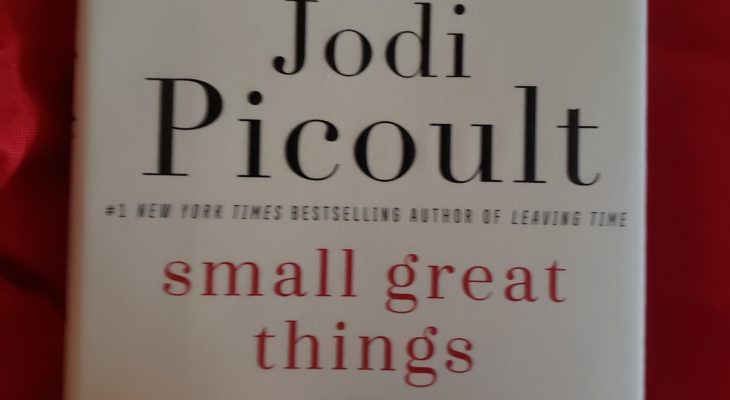How much do you know about Black History or Black culture, my white friends?
If you’re like me, not nearly as much as we should. And we certainly shouldn’t only care about it during Black History Month, but it’s as good a time as ever to step up our game.
Retonia Brashier on Facebook posted this:
“So I have a challenge for my white brothers and sisters. During the month of Black History in February. Watch a black movie every week. I’m going to watch one each day.
The reason I ask this. is in my experience being around white culture for 35 years, I was always expected to know your movies or TV shows but you never really knew about my culture. It will broaden your perspective
(I added the movie release date and IMDb links.)
1. 12 years a Slave (2013)
2. Marshall (2017)
3. Selma (2013)
4.The Book of Eli (2010)
5. Sounder (1972)
6. The Autobiography of Miss Jane Pittman (1974)
7. Claudine (1974)
8. I Am Not Your Negro (2016)
9. Get Out (2017)
10. The Trip to Bountiful (1985)
11. A Raisin in the Sun (1961)
12. Fences (2016)
13. Black Panther (2018)
14. A Wrinkle in Time (2018)
15. The Color Purple (1985)
16. The Butler (2013)
17. Poetic Justice (1993)
18. Boyz n the Hood (1991)
19. They Call Me Mister Tibbs (1970)
20. Mississippi Masala (1991)
21. Ray (2004)
22. Remember the Titans (2000)
23. Lean On Me (1989)
24. Love & Basketball (2000)
25. Moonlight (2016)
26. Let’s Do It Again (1975)
27. Car Wash (1976)
28. Carmen Jones (1954)
28B. If Beale Street Could Talk. (2018)”
This is a totally reasonable challenge, and even though I’m much more of a reader than a movie watcher, there is something very visceral and direct about motion pictures.
Movies I had already seen: 12 Years a Slave (that was GUTTING), The Autobiography of Miss Jane Pittman (a zillion years ago), A Raisin in the Sun (likewise), Black Panther (I love love LOVE that movie), The Color Purple (saw the movie, read the book, saw the STAGE play), Poetic Justice (sweet love story), Ray, and I think I saw Car Wash.
Which leaves quite a few on this list I haven’t seen, and many of them are free or super inexpensive to stream. I watched Selma, last night, but before I write my impressions of it, a couple other impressions. I love me some Sidney Poitier, Denzel Washington, and Cicely Tyson, and now, Chadwick Boseman, but rumor has it there is more than ONE hot young Black man or woman available for feature film lead roles at any given time.
Just in case Hollywood is feeling confused about that.

Yeah, I knew it was (and still is) hard for people of color to register to vote in the South (not that the North doesn’t have problems with racism, too); I did not realize that it was virtually IMPOSSIBLE. “No taxation without representation” and “Don’t Tread on Me” are apparently, considered American values only for people who are white.
One of the most powerful exchanges in the movie Selma for me was this scene between MLK and LBJ, discussing WHY voting rights can’t wait. Johnson wants to end poverty, and wants all that troublesome “identity politics” to wait at the back of the bus till poverty is all gone. (In other words, never.) Meanwhile, those pesky Black citizens keep trying to register to vote and are getting murdered for it. Which Johnson acknowledges.
From the script by Paul Webb and Ava Duvernay:
KING
And you know the astounding fact that not one of those criminals, who murder us when and why they want, has ever been convicted.
JOHNSON
Martin, I know we got a lot more work to do down there –
KING
Not one conviction. Because they’re protected by white officials chosen by an all-white electorate. And on the rare occasions they face trial, they’re freed by all-white juries. All-white because you can’t serve on a jury unless you’re registered to vote.
This fight progressed because Black people were joined by white men and women – not in the front row, not talking over the Black leaders of this fight – but standing with them. Reporting and broadcasting the horrible beatings and attacks on these citizens who just wanted to be treated as people and exercise their legal right to register and vote.
As a white person, it is hard to wrap my mind around how horrible it was – and still is. Elements of that same racist element are still/again working to disenfranchise people of color, and I am more determined than ever to not let them win.
The White Privilege of Jodi Picoult
Jodi Picoult is a prolific, hugely popular author (her last eight books have debuted at #1 on the New York Times best-selling list). Aaaand she’s white.
As I began reading Small Great Things (2016), and she started from the Point of View of Ruth Jefferson, experienced Labor and Delivery nurse – and black woman, I was thinking, “Oh, no. Not another white writer presuming she can tell a story FOR People of Color.” Ruth is also something of a tight-ass, or so it would seem.
And then the narrator shifted, and it’s from the POV of a young white supremacist. Ugh. I almost threw the book against the wall at that point, but her style drew me in, and I kept reading.
A lot of terrible things happen, including (spoiler alert) a dead baby, and then there’s a third voice, a fairly privileged white woman who’s a public defender and “doesn’t see color.” She has to defend Ruth, but even though she (Kennedy) knows and Ruth knows that race is a big factor in the courtroom, they have to pretend that it’s not, if they want to win.
Picoult’s trademark subject matter is semi-tabloid, “ripped from the headlines” ethical dilemma stories. I wanted to hate on her telling this story; it’s not fair that there are so many talented writers of color who don’t get a fraction of the readership that Ms. Picoult does. And sometimes she’s a little heavy-handed, with the points she is driving home.
But she’s an excellent storyteller, and it’s clear she’s done massive amounts of research, some of it hugely unsavory. She also used sensitivity readers and took classes to do the best possible job. Yes, she has white privilege. But she can’t be anything other but a white writer, any more than I can. What Picoult has doing with this book is leverage that privilege, using the reach of her readership to plant seeds and ideas that many white readers would never ordinarily consider.

And that’s a win. I still advise white readers, if you really want to better understand people of color and black history, read THEIR work.
But if you’re a straight white able-bodied American writer, like me, please promote the work of POC (all year, not just during black history month), and let’s include Black people, disabled people, LGBTQ people, and other marginalized groups in our work. While making sure, like Picoult, we do our homework and represent them to the best of our ability.
It is, literally, the least we can do.
Your thoughts?
Got book or movie recommendations?


GET OUT is terrific! KKlansman is great! 2 more movies for your list.
Great post. I read SMALL GREAT THINGS and articles surrounding the controversy. I think Picoult did her homework and yet I agree that the reading audience of writers of color needs to expand. Film is a good place to start. And I have seen 18 of the films you listed and will make it 28! I write about empathy today and many days, but we all need to open ourselves to people of all colors and backgrounds–to want to learn more about all the people that live on this great earth. Small things can be a start and lead to great things. And no matter where you live or how busy your day is–read. There is no excuse not to open your mind to the lives of others.